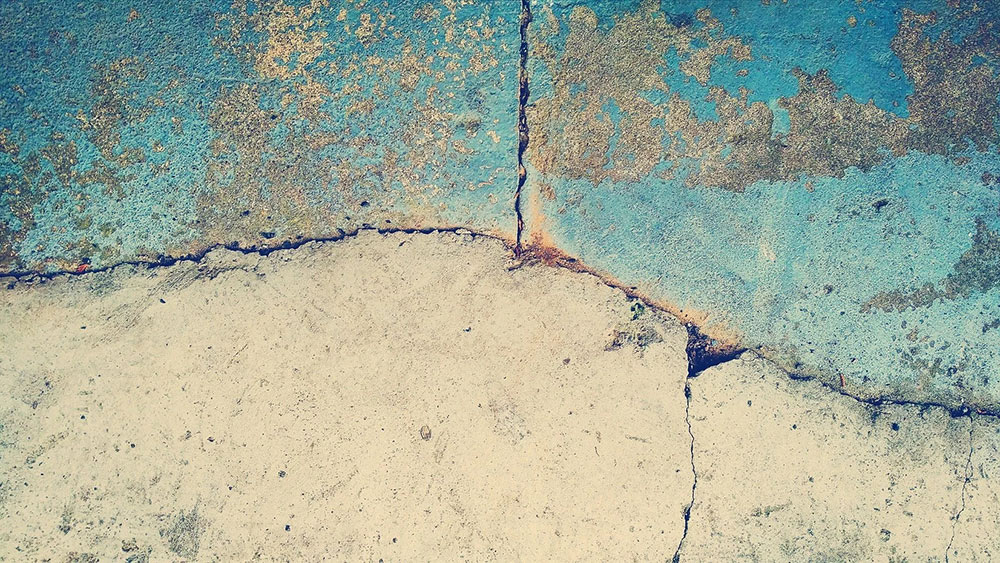When Barack Obama was elected US President in 2008 “The Onion” ran the headline “black man given nation’s worst job”. Much as I found their take on events amusing, even being President during this period of such economic misery can’t compare to what really is the worst job in the world: writing.
 Today’s guest post is by London writer Mark Piggott. His published novels to date are Fire Horses and Out of Office. He’s also had major features in the Times, Guardian, Independent, Mail, Express, Sunday Express, Telegraph, Observer and more. His website is at: www.markpiggott.com.
Today’s guest post is by London writer Mark Piggott. His published novels to date are Fire Horses and Out of Office. He’s also had major features in the Times, Guardian, Independent, Mail, Express, Sunday Express, Telegraph, Observer and more. His website is at: www.markpiggott.com.
When Barack Obama was elected US President in 2008 “The Onion” ran the headline “black man given nation’s worst job”. Much as I found their take on events amusing, even being President during this period of such economic misery can’t compare to what really is the worst job in the world: writing.
It’s not the mechanical act of writing itself that’s the problem; I’m never happier than when I close the office door, switch on my laptop and begin to chart new worlds. Like most writers, this is where I’m happiest: making stuff up, creating narratives that fit. It’s when I’m forced to emerge from my own space, deal with real people, many of them in positions of absolute and oft-abused power over my own destiny, that I struggle.
Yes, I realise that a writer moaning about their lot is a rather unseemly spectacle; and yes, I have done my fair share of ghastly jobs, including cleaning toilets, sweeping the streets and once – as a school caretaker – having to empty a freezer of decomposing rats, eyeballs and horse’s lungs after some kids pulled the plug just before a sweltering weekend.
However what makes writing truly unique – even among the more creative – ugh – “industries” – is that you have so much power over your own input – and yet so little. When writing your book you have absolute control over its contents; every word, every sentence, is down to you and you alone. For a writer, this should not be a daunting prospect, rather an exciting opportunity, or rather, an infinite combination of possibilities.
Once your novel is finished, on the other hand, you are drained of all power; from being a little god you are just another worshipper at the feet of the true masters of the universe, the real writer’s blocks: the agents, publishers, bookshops, critics and reading public.
 This transition from omnipotence to impotence is perhaps one source of the crazed psychosis many writers suffer from time to time (or maybe most or all of the time, our symptoms somehow suppressed). We create then become useless; we are parents whose children have flown the nest and barely remember to call.
This transition from omnipotence to impotence is perhaps one source of the crazed psychosis many writers suffer from time to time (or maybe most or all of the time, our symptoms somehow suppressed). We create then become useless; we are parents whose children have flown the nest and barely remember to call.
A musician can make music and stick it on YouTube, a painter can daub on derelict walls and their creation is deemed valid, judged only by its own innate skill. A writer – and particularly a novelist – does not have this option. They must be validated, preferably by some vast multi-national corporation, whose own ethos may be the antithesis of everything that writer holds true, or they are nothing: they are not writers, no matter what they write and how well they do it.
(It has been explained to me, for example, that because my books are published by a small independent – Legend Press – rather than some gigantic conglomerate which is doubtless a key part of the military-industrial complex, I can’t be much cop as a writer. Maybe they’re right; but this attitude – held even by those of what used to be quaintly called “the Left” – smacks to me of perverse logic.)
So: you work on a novel for months or years; you send it off into the blue; if you are lucky (luck always plays a part), you may secure some sort of publishing deal. Even then you’re nowhere. Unless some sharp-eyed critic decides to make you their flavour of the moment or some bookshop deems you worthy of a push in the right direction, your books won’t sell; or rather, they might sell but then the bookshop won’t order any more from your publisher because – hurrah! – Here comes another one. Writers: there’s one born every minute.
Most writers get one or two breaks, but if their books don’t break the bank they’re finished, in a worse place than any of the poor souls fretting out there without a writing credit but with big dreams. The unknown author at least has potential; the published, under-performing author is old hat, their embarrassing recent history best deleted.
A couple of years back I met the lovely writer and critic Al Alvarez. He asked my then five-year-old daughter what she wanted to be when she grew up. To my gratification she replied: maybe a writer.
Al chuckled:
Oh no, don’t do that… anything but that!
Indeed: anything but that. Do anything you can to avoid the misery, self-loathing and poverty of being a writer. If however you cannot do anything else, if you MUST, then maybe you might make it – whatever “making it” means. I used to think a book or two on the shelf would suffice; it does not.
Onward I march, almost to the end of a draft of book four, while book three still languishes, my agent and publisher skirting issues and polite in conversation as only two people who have absolutely no emotional investment in my project – my book – can be.
If no-one buys my books, why write? Every time I close the office door and turn on the laptop I am in a sense depriving my children: of financial security, of at least some emotional energy. I don’t know why: it’s just always been there, the one constant in a narrative I would otherwise find indecipherable.
At least I have the answer to one question, a question that haunts so many people who like the idea, maybe, the presumed prestige, of the label: I know what I am.
Lately I’ve been reading a lot of the strangely neglected William Saroyan. His voice is fresh and modern and kind, and he has much to say about writing. As he says, in Calouste Gulbenkia when a cousin asks him: “Am I a writer?”
The proper answer to that question would be, ‘If you can ask such a question, you are not a writer’.
I’m always meeting people who explain that, if only they had the time, they would write a great novel – or at least one that would sell a great many copies, which I suppose is a form of greatness (he said, grudgingly). Perhaps fearing yet more competition I tell them: don’t bother. Don’t do it.
Do this instead: go to a bookshop and buy a book. A real, old-fashioned book with pages of paper that fan beneath your fingers. Not necessarily MY book (though it might as well be mine as anyone else’s, books by Andrew Blackman for that matter) – just buy a book and read it and even if you hate it remember what I said about writing. Without you, we are nothing. We do not exist. We toil away in our book-lined hovels like so many monkeys.
I would give anything not to write. I resign from this self-appointed (inescapable) post daily, look around vaguely for a “proper” job (what else can a writer do? Not much), boycott the laptop, try to stop the voices in my head whispering these ideas, characters and situations, determined to teach the world a lesson. Of course nobody notices.
So I begin…



There are 4 comments
It’s very easy when you’re on the outside to see novels as a way of making a lot of money, and that’s been cemented by the new self-published authors who have made millions without the help of the Big 6. I find Twitter a good wake up call for this, because so many author talk about their “proper job” as well as their books, it reminds you that being published isn’t the door to sitting in PJs all day. As someone who is both a musician and a blogger (not quite the writer you mean, but enough to make a comparison) I agree with the thought that musicians have it easier, especially when it comes to the amount of time needed to complete the work. It’s much easier for someone to spend 3 minutes listening to a song and “like” it than spend a few hours reading a book and write a well-thought-out review, which is generally what society in general deems appropriate for each of the two mediums, and means that you are more likely to get more (if shorter) opinions of music than of a book.
Hi Charlie
I think one of the things that contributes to that misperception is that novelists hate to talk about the other things they do to make money. I’m guilty of that myself – I’m not doing any other work at the moment, but I have done lots of other jobs since I got published, and am still far from having a reliable income from fiction writing alone. But talking about that seems to conflict with the image I try to portray, of a successful writer whose career is on the up and whose novels are so popular that you the reader simply must buy it for yourself to see what all the fuss is about. So what I liked about Mark’s post was its blistering honesty. It is hard to get attention, to make a living, to be successful and also to write what you want to write. I’m still glad I chose to do it, but I’d think twice about recommending it. In fact, I think maybe creative writing courses should come with a Government Health Warning…
Hi Andrew
I’ve just found my way to your site having been informed that you are a new follower on Twitter. I am a mere fortnight into the whole Twitter thing so I am always pleased when I find any evidence that the thing works, Maybe you are the same. Correct me if i am wrong, but I get the feeling that the main thing that makes writing the worst thing in the world for you is the need for a publisher and then being completely at their mercy. Many moons ago when I finished my first novel I did the whole hunting for agent/publisher thing and wasn’t much impressed by what I found. I took the decision to say stuff it and publish the thing myself. My theory was that I had sold loads of stuff from double glazed windows to cattle feed so surely books couldn’t be that hard. Results? Not bad in a certain light. Over the last 15 years I have written and published 15 novels and sold about 100,000 of them. Money wise it has been pretty well a waste of space and were I to divide the moeny I have made by the hours I have put into it I would be up there with a shift worker in a Java sweatshop. The good bit has been having the freedom to write about anything I like which has been more than interesting at times. It has never ceased to amaze me what access you get as an author doing research. I have made contact with people who would never have given me houseroom had I been a journalist, particulary when researching books set amidst the Troubles in Ireland. That is a definite plus point and adds greatly to the fascination of the job. Choosing something to write about can be as much about where the research might take the author as where the story takes the reader. All of this makes the prospect of getting everything onto Kindle particularly attractive. No more storing books in the basement and carting them to bookshops which eventually go bust on me. No more padded envelopes and stamps. No more trolling off to the bank to pay in cheques. Write it. Post it onto Amazon. Then find a way to let readers know its there. And at the end of the month with a bit of luck some cash drops into the account. So maybe Kindle is the way to escape the clutches of publishers and grab a hold of your own destiny? Please let me know if you ever want a guest blogger. You’ll find the kind of stiff I blog about at – https://marksimonfrankland.blogspot.co.uk/ . All the best. Mark
Hi Mark
Thanks for the comment. It was a guest post, so it’s not me who said writing is the worst job in the world – I actually like it! But I do identify with a lot of the points made in the post, so your comment is on target.
I think the way you’ve done things is great. 100,000 is a lot more copies than I’ve sold so far. For me there’s a lot to be said for self-publishing, especially these days as the technology makes it a lot easier than it was 15 years ago. It just comes down to personality – if you’re good at selling, which you clearly are, then self-publishing is definitely the way to go. I never have been good at that, though, and I think if I’d self-published then I’d have sold far fewer copies than I have done with a publisher and an agent working on my behalf.
People argue ad infinitum about which is better, but to me it’s redundant – what matters is to know thyself. Self-publishing is better for some writers, and traditional publishing is better for others. I’m happy with the route I chose, but I’m also happy to hear about someone like you who’s made a success of doing it by himself. Long may it continue!
As for a guest post, I’d be happy to welcome you on the site. I’ve done a lot of guest posts recently so I’d prefer not to run one for a little while, but maybe in a few weeks. Send me an email at info@andrewblackman.net with your idea, or a finished post if you prefer.